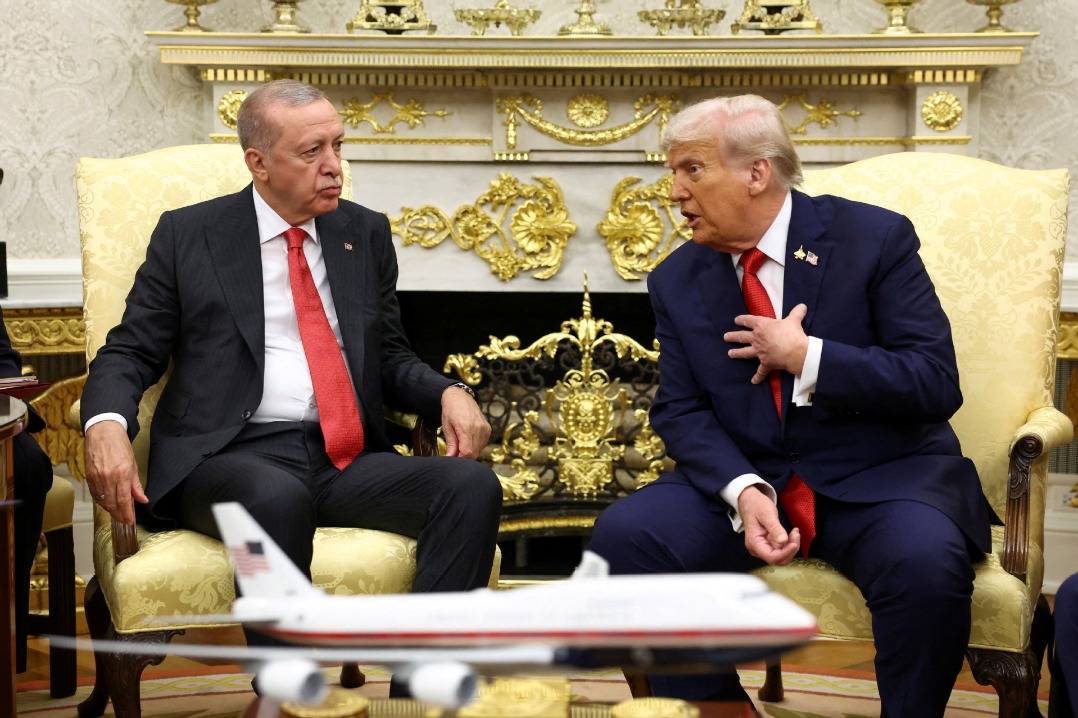China joins UN arms-trade treaty


China's envoy to the United Nations on Monday affirmed the nation's commitment to the Arms Trade Treaty (ATT) to UN Secretary-General Antonio Guterres.
"The Chinese government attaches high importance to the problems caused by the illicit transfer and abuse of conventional arms. China supports the purposes and goals of the (ATT) and agrees on taking necessary measures to regulate international arms trade and combat illicit arms transfer," said Zhang Jun, China's permanent representative to the UN, at a virtual press conference after depositing the instrument of accession document Monday.
"Meanwhile, China always strictly regulates export of military articles with policies and management measures meeting, or in some areas even exceeding, ATT requirements," the ambassador said, adding that it is worth pointing out that China allows arms export only to sovereign states and not nonstate actors.
"This fully demonstrates its high sense of responsibility," he added.
Zhang called on all parties to strictly regulate the export of military items, disallow exports to nonstate actors and to stop interfering in sovereign states' internal affairs through arms exports.
The ambassador emphasized that accession to the ATT is "another important step in China's active participation in global arms trade governance to safeguard international and regional peace and stability".
"It demonstrates China's resolve and sincerity in maintaining the international arms control regime, supporting multilateralism and forging a community with a shared future for mankind," he said.
"It will further enhance the treaty's universality and contribute to global security governance and the international arms control process," he added.
Zhang said that the world is now facing multiple challenges and that unilateralism has become the source of trouble.
A "certain country has quit multilateral arms control agreements and international treaties and organizations in succession (and) walked away from international commitments, launched acts of unilateralism and bullying. This has brought huge uncertainties to the global strategic balance and stability and seriously undermined the joint efforts of all countries to tackle global challenges," he said.
"At this critical moment, major powers need to honor commitments, shoulder responsibilities and set an example by contributing to safeguarding the international order, the rule of law, the role of the UN and multilateralism," he added.
Zhang reiterated that China will continue to "take the side of multilateralism and fairness and justice, abide by the purposes and principles of the UN Charter, uphold international arms control treaties and regimes and make greater contributions to shaping a well-regulated and sound order for arms trade, maintaining international peace and stability and promoting common development of the world".
The ATT was adopted by the UN General Assembly on April 2, 2013, and entered into force on Dec 24, 2014. With China's accession, it now has 107 countries that have adopted it.
Depositing the instrument of accession marks the conclusion of the domestic legal procedures for China's accession to the treaty. As per the provision of the ATT, the treaty will enter into force for China 90 days after the deposit.

































